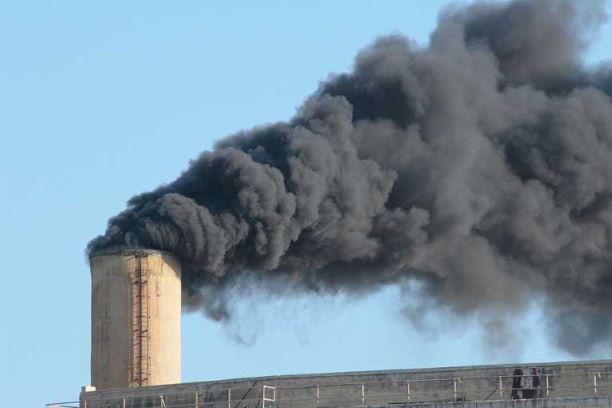Clean Breath: Soot Content Lowers in Indian Air Says IISc & ISRO Study

According to the recent study by scientists from the Indian Institute of Science (IISc) and Indian Space Research Organization (ISRO), the amount of soot or black carbon in India’s air is reducing. It has been declining at a rate of 100 nanogram per cubic metre per year, the study has revealed.
Soot consists of tiny carbon particles called aerosols. These are much smaller than the diameter of a human hair strand and hence can enter our lungs and cause serious damage to health. Not just that. They can have an adverse impact on the Indian monsoon as well.
The study results are surprising as the popular belief is that concentration of this near-surface soot will continue to rise due to the emission of pollutants by thermal power plants, domestic cooking and crop burning. Black carbon particles are much smaller compared to particulate matter (like PM 10 or even PM 2.5 in some cases) in the air and are more dangerous given their tiny size.
“The results show that the government’s policy to encourage rural communities to use gaseous fuel for cooking may be bearing fruit,” said the researchers’ team from IISc’s Divecha Centre for Climate Change (DCCC). The study was done by analysing six-year data from 28 ground stations set up by ISRO in different parts of India.
Affects air quality, health
– Black carbon is the second largest contributor to global warming after carbon dioxide, affects air quality and human health and reduces visibility by increasing opacity
– It traps sun’s heat, increasing heat in the troposphere, affecting cloud formation and precipitation in lower latitudes thus impacting the monsoon-dependent South Asia region. It increases melting of glaciers in higher altitudes.
– Light-absorbing black carbon nullifies radioactive cooling of the atmosphere due to scattering of solar radiation by non-absorbing aerosols and sulphates
Coal plants undesirable
“During the past 20 years, there have been increasing concerns about the impact of soot on monsoon and our health. India has an ambitious plan to build a large number of power plants running on solar and wind energy, which will reduce the need for more coal plants. Coal power plants emit sulphate, soot particles and carbon dioxide and hence, are considered undesirable for future,” said IISc researchers.
ISRO has been measuring black carbon at many ground stations (readings taken from one to two metres above ground surface i.e. the level at which most humans breathe) across India under their Geosphere-Biosphere program (ISRO-GBP). Aerosols can be measured from a satellite, but these measurements don’t provide an accurate estimate of black carbon concentration near the ground. Hence, the team analysed data from ISRO’s ground stations.
Research on aerosols in India started in 1983. The pioneers in this area include Prof SK Satheesh from DCCC, IISc and Dr K Krishnamoorthy, former director of ISRO’s Space Physics Laboratory. The study has been co-authored by Prof Satheesh, Dr Krishnamoorthy and researchers’ MR Manoj and Dr Mukunda M Gogoi. The team also comprises scientists from ISRO, department of science & technology and IITs.
The research was recently published in Geophysical Research Letters, a scientific journal of geoscience published by the American Geophysical Union. “Several questions had to be answered and we had to show proof of the results before the paper could be published,” said Dr Krishnamoorthy, who’s currently a scientist at DCCC.
Impact on monsoon
The impact of soot on monsoon is more complex. Black carbon can absorb the sun’s radiation and heat up the atmosphere but prevents it from reaching the earth’s surface. Scientists are worried over the presence of soot in the atmosphere, which causing global warming and can weaken the Indian monsoon.
It can locally increase or reduce rainfall depending on the relative amount of soot and sulphate aerosols, particles that are released during combustion of coal. Sulphate aerosols reflect the sun’s radiation, cooling the earth.




